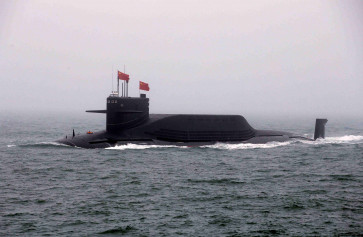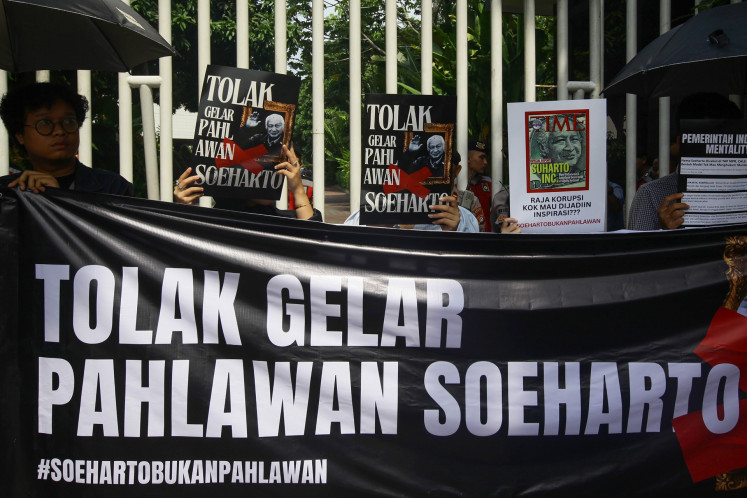Popular Reads
Top Results
Can't find what you're looking for?
View all search resultsPopular Reads
Top Results
Can't find what you're looking for?
View all search resultsExplainer: Why ‘bersiap’ is causing furor and confusion
Few in the Indonesian public know that the term is used in connection with that historical incident. Many are unaware if it is even mentioned in the history books and as such, have been confused by the furor over it.
Change text size
Gift Premium Articles
to Anyone
T
he recent controversy over the word “bersiap” (ready) has drawn the people to take a closer look at their own history, in particular the chapter following the Independence Proclamation on Aug. 17, 1945. This has imbued the ongoing discourse with more critical understanding toward acknowledging the dynamics of the violence that various groups in the country experienced during that time.
Previously limited to academic circles, the long-standing discourse rose to public consciousness last month after an op-ed by Indonesian historian Bonnie Triyana, published in Dutch newspaper NRC Handelsblad, elicited emotional response in that country.
In the Netherlands, the furious debate revolves around whether the word “bersiap”, used as a battle cry meaning “get ready” by Indonesian youth fighters, should be used in reference to the violent upheaval that followed Indonesia’s proclamation of independence.
Few in the Indonesian public know that the term is used in connection with that historical incident. Many are unaware if it is even mentioned in the history books and as such, have been confused by the furor over it.
The debate provoked discussion among Indonesians about the dark chapter of the Indonesian Revolution, which appears as a heroic narrative in official historical accounts.
Grace Leksana, a historian at the State University of Malang in East Java, said this heroic narrative covered up violent incidents that occurred during the early years of the revolution, such as violence that targeted the Chinese and other minority groups, which do not appear in Indonesian history textbooks.
"In our country, the challenge is to broaden our view and embrace the very varied events of the revolutionary period, which are not just stories of heroism," Grace told The Jakarta Post.
‘Black page’
In Dutch history, the term “Bersiap” refers to the critical period following the Independence Proclamation until the Netherlands, with support from the Allied forces, established a military administration at the end of 1946.
Indonesian history refers to the period as an early part of the revolutionary era, also called the war of independence, and rarely mentions “bersiap”, if ever.
Historian Agus Suwignyo, from Yogyakarta’s Gadjah Mada University, said anti-colonialism, which had escalated into anti-Western sentiment during the Japanese occupation of 1942-1945, as well as starvation, years of oppression and structural tensions that had built up during the colonial era fueled the violence after the 1945 proclamation.
A number of groups robbed and attacked Europeans, Indo-Europeans, Ambonese, Chinese, Timorese, even Indonesians and whomever they considered as colonial collaborators.
For example, said Agus, these groups attacked Surakarta Palace in Central Java and anything deemed as symbols of feudalism and colonialism.
Many Indonesians suffered during this period, with thousands of civilian lives lost and sources of income disappearing. Some faced an even worse situation when fighters from these groups forced them to provide food amid starvation.
The new republic, still struggling to set up its administration, was overwhelmed by the violence and chaos.
Sutan Sjahrir, one of the founding fathers of the republic along with Sukarno and Hatta, condemned the violence. Former education minister Abu Hanifah once called this period of violence a “black page” in the history of the Indonesian Revolution.
"These kinds of details do not appear in the grand narrative of Indonesian history," Agus said.
According to him, the revolution is described as romantic and heroic to magnify the meaning of the proclamation in the early decades of independence.
"I think it's time for us to be brave and revisit the revolution's romantic construction of patriotism with a critical approach to history," Agus said.
When Dutch and Allied forces arrived in September 1945 to regain control of the newly independent country, they were met with resistance.
Grace said the Dutch were ready for war and their arrival culminated in widespread violence. "There was structural violence from the Dutch army as well," she said.
Swiss-Dutch historian Rémy Limpach writes in De Brandende Kampongs van Generaal Spoor that Dutch troops committed structural violence when they launched an attempt to recolonize Indonesia, countering the Bersiap violence and retaking control of Dutch internment camps.
Limpach also writes that a multifaceted conflict occurred during Bersiap, when the Dutch engaged in aggression against the Allied forces and Chinese civilians. According to him, British troops were also involved in violence in some regions, torturing and killing Indonesian prisoners.
Acknowledging the victims
University of Amsterdam historian Remco Raben said that in Dutch historiography, Bersiap was invented within the colonial framework that took the racist view that Indonesians were primitive and uncivilized in order to criminalize the Indonesian Revolution.
He added that using Bersiap as a name that generalized the dynamics of violence during the revolution could obscure the historical chronology and ignore the victims who hailed from various groups in the population.
In the Netherlands, “bersiap” has emotional resonance, especially among the Indonesian-Dutch, a neglected community in the Dutch historical narrative who are fighting for The Haag to recognize their harrowing experience in the immediate years following Indonesian independence.
“I think all people in both countries should be openly informed about the past, including the darker sides of their national history. In that sense, Dutch society should be more informed about the effects of colonialism and colonial warfare,” Raben said.
He noted that the history of revolutions, wars and colonialism were dominated by the politics of memory by governments, heritage institutions and certain groups.
To take an approach that covered multiple perspectives, Raben said, different sides should tell their own stories, not only limited to "Indonesian versus Dutch" but also open to a myriad of other voices.
"Various experiences deserve to be heard," Raben said. "But this should not mean that Dutch violence can be traded off or mitigated by the existence of Indonesian revolutionary violence."










